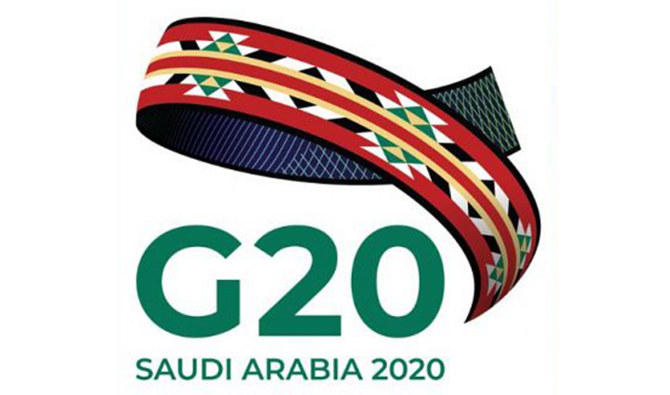
- ARAB NEWS
- 02 Jul 2025

Saudi Arabia chairs this year’s G20, which brings the world’s 20 largest economies together — accounting for 85 percent of global GDP and 64 percent of the world’s population. This is not just an important moment for the Kingdom, but for the world as a whole.
Saudi Arabia is one of only three majority Muslim nations in the club alongside Indonesia and Turkey. It is also the only Arab member state. Therefore, the significance of Saudi Arabia acting as the host of the meetings throughout the year cannot be overstated.
Like all economic gatherings since January, last weekend’s meeting of the G20 finance ministers and central bank governors was affected by the fears over the spread of the coronavirus and its effect on the global economy. International Monetary Fund chief Kristalina Georgieva warned last week that the virus could shave 0.1 percent off global growth by the end of the year. This would leave global growth at 3.3 percent. Better than last year, but still on the anemic side. These forecasts have to be taken with a pinch of salt, because if the virus morphs into a pandemic its impact on the global economy could be far greater. It is too early to tell at this stage.
The other effect the virus had on the meetings was that the discourse shifted away from the usual belligerent rhetoric on trade tensions. They were barely mentioned in the final communique. On one hand, this can be attributed in part to the conclusion of the first phase of a US-China Trade Agreement. On the other hand it was underpinned by uncertainties related to the coronavirus, which is speeding up the decoupling of supply chains.
Communiques are not just about what is mentioned and what is left out. They are also about the order in which agenda points land. The focus on strong, sustainable, balanced and inclusive growth is important. Sustainability and inclusiveness clearly played a key role. The communique mentions financial and economic inclusion several times, highlighting women and the youth in particular. While these are global priorities, they are also cornerstones of Vision 2030. The heavy focus on infrastructure and technology was also reminiscent of the key topics of last year’s Future Investment Initiate in Riyadh.
There was a clear communique, which is not always the case — particularly when the largest economies are at odds on certain issues.
Cornelia Meyer
The role of multilateral development banks (MDBs) was noteworthy in all aspects of global economic activities ranging from supporting the role of the private sector in development and fostering local currency bond markets to MDB insurance schemes as well as addressing the plight of fragile states. Well done on the MDB community for having brought their agenda points up front and center.
Ayman Sejiny, the CEO for the Development of the Private Sector, a private sector entity of the Islamic Development Bank, stressed the importance of examining the implications of climate change on financial stability in the bank’s member countries as well as in the world.
Major economies were particularly interested in the issues surrounding “base erosion and profit shifting,” which is about where and by how much multinational companies, especially in the tech sector, should be taxed.
The debate has been raging between Europe (particularly France) and the US. On Monday, French Finance Minister Bruno le Maire was categorical on Bloomberg TV that the announced solutions on taxing revenue where it is earned and a minimal corporation tax in all jurisdictions had to be reached by the end of the year, just as it was announced in the communique.
All in all, this meeting of the G20 finance ministers and central bank governors can be seen as a success. There was a clear communique, which is not always the case — particularly when the largest economies are at odds on certain issues. The communique was also balanced in what was important to major economies, while shining a spotlight on development issues, sustainability and inclusion.
• Cornelia Meyer is a business consultant, macro-economist and energy expert. Twitter: @MeyerResources